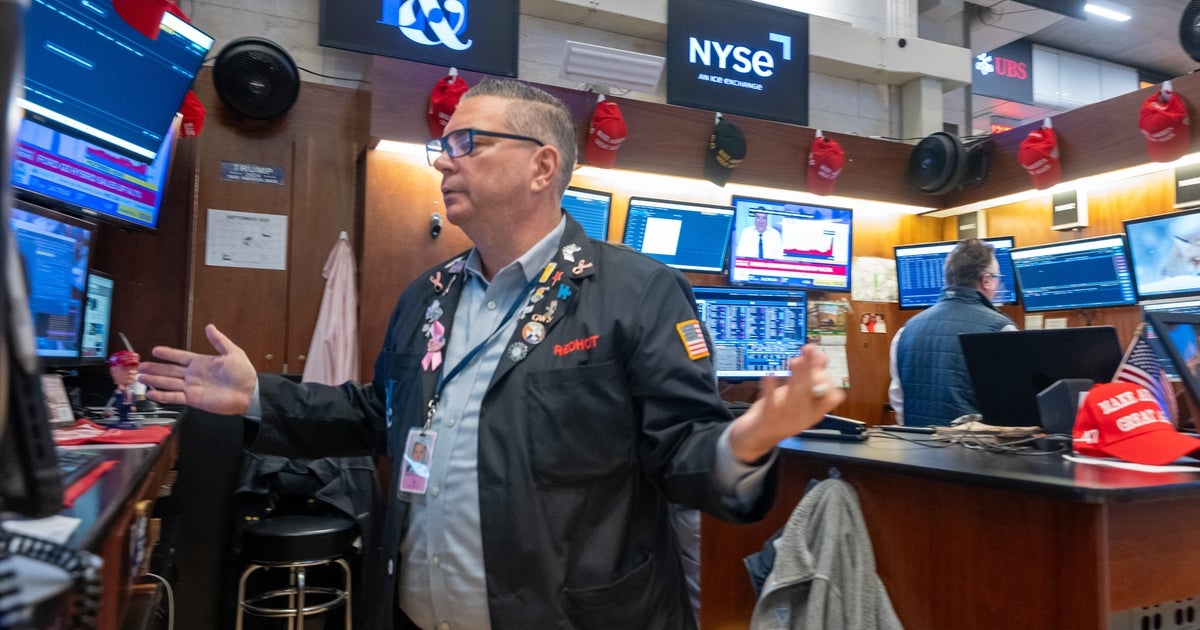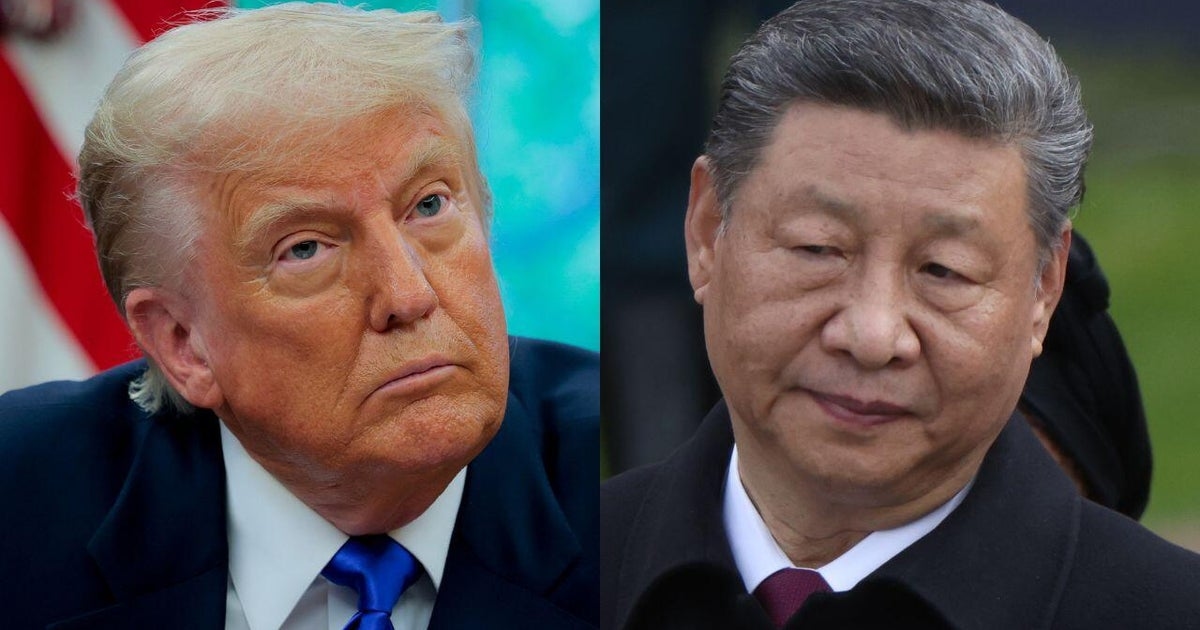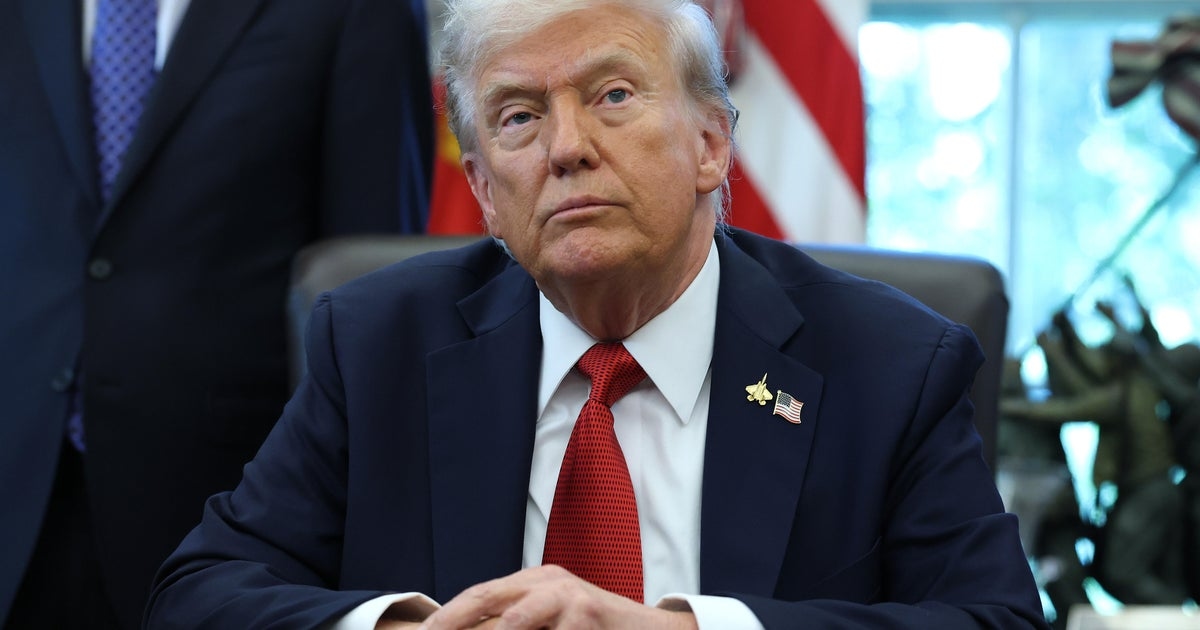Stocks slump after Trump threatens to hit China with more tariffs

Investors are shuddering on concerns of renewed trade tensions between the world's two biggest economies.
Stocks fell sharply on Friday, with the S&P 500 shedding 183 points, or 2.7%, to close at 6,553 in what was the index's worst day since April. The Dow Jones Industrial Average fell 879 points, or 1.8%, and the Nasdaq Composite dropped 3.6%.
The selloff affected a wide range of stocks, from Big Tech companies like Nvidia and Apple to stocks of smaller companies looking to get past uncertainty about tariffs and trade.
"Investors still think the tit-for-tat between the U.S. and China these last few days is mostly posturing (the consensus view is that tariffs won't go up, and that Trump and Xi will still meet in South Korea), but trade-related risks have certainly risen after being dormant for the last several weeks," Wall Street analyst Adam Crisafulli, head of Vital Knowledge, said in a report.
Stocks had been heading for a slight gain in the morning, until Mr. Trump said on his social media platform said he's considering "a massive increase of tariffs" on Chinese imports. He's upset at restrictions China has placed on exports of its rare earths, which are materials that are critical for the manufacturing of everything from consumer electronics to jet engines.
"We have been contacted by other Countries who are extremely angry at this great Trade hostility, which came out of nowhere," Trump wrote on Truth Social. "Our relationship with China over the past six months has been a very good one, thereby making this move on Trade an even more surprising one. I have always felt that they've been lying in wait, and now, as usual, I have been proven right!"
Mr. Trump also threatened to call off a planned meeting with Chinese President Xi Jinping at the Asia-Pacific Economic Cooperation summit in South Korea later this month.
"Threatening significantly increased tariffs on China is a hallmark of Trump's negotiating tactics, and all it took was a headline to entice investors to take some chips off the table," Charlie Ripley, senior investment strategist for Allianz Investment Management, said in an email.
Primed for a slide?The market may have been primed for a slide. U.S. stocks were already facing criticism that their prices had shot too high following a nearly relentless 35% run for the S&P 500 from a low in April to record heights.
Critics say the market looks overpriced after prices rose much faster than corporate profits. Worries are particularly high about companies in the artificial-intelligence industry, where pessimists are making comparisons to to the 2000 dot-com bubble that ultimately imploded. For stocks to look less expensive, either their prices need to fall, or profits need to rise.
Other factors also weighed on investor sentiment Friday, including the ongoing U.S. government shutdown and fresh data showing that consumers are anxious about the economy.
The University of Michigan's preliminary October sentiment index, released Friday, shows consumer sentiment fell 0.1% on a monthly basis, from 55.1 points in September to 55. While the drop was nominal, it represents the third consecutive month the confidence measure, which is closely watched by investors, has declined.
"Pocketbook issues like high prices and weakening job prospects remain at the forefront of consumers' minds," Joanne Hsu, director of the Surveys of Consumers at the University of Michigan, said in a statement.
The job market has slowed so much that the Federal Reserve cut its main interest rate last month for the first time this year. Fed officials have penciled in more cuts through next year to give the economy more breathing room. But Chair Jerome Powell has also said they may have to change course if inflation stays high. That's because lower interest rates can push inflation even higher.
Cbs News




